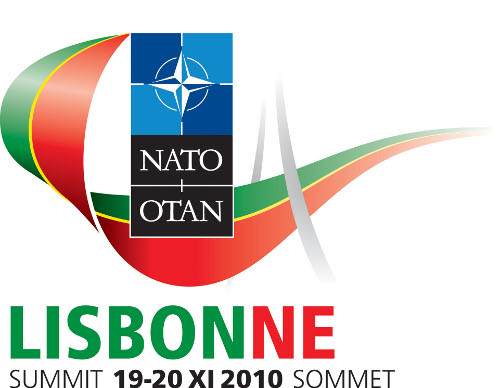
NATO’s Lisbon Summit exceeded all reasonable expectations. Yet it leaves critical questions about the Alliance unanswered.
Once upon a time, the meeting was supposed to launch a new NATO, building on the experience in Afghanistan and forging a path for the decade to come. But the combination of disillusionment with that mission and the devastating impact of the global recession on European defense budgets cast a shadow of dread on the Summit in recent months. Even the most ardent Atlanticists began asking themselves: Is NATO still relevant? With Europe seeming to enter into a period of demilitarization, if not pacifism, the American secretary of defense began questioning "the long-term viability and credibility of NATO" and "the transatlantic security project writ large."
My colleagues Damon Wilson and Jeff Lightfoot outlined NATO’s Top Challenges on the eve of the Summit. The leaders of the 28 member states rose to every single one — at least on paper.
On Afghanistan, they committed themselves to finishing what they started. They set a 2014 deadline for handing over security to the Afghan government, but committed to stay indefinitely after that in a supporting role. Secretary General Anders Fogh Rasmussen vowed, "To put it simply, if the Taliban or anyone else aims to wait us out they can forget it. We will stay as long as it takes to finish our job." Beyond those defiant words, however, the Americanization of the war continues apace. Canada, an Ally who has suffered a disproportionate share of casualties, joins others in rapidly transitioning to a training and support role. Thus, the "we" rings increasingly hollow.
Not only was the new Strategic Concept agreed to with surprising ease, but it actually expanded NATO’s strategic reach. But with diminished resources and political will, it remains to be seen how the Alliance will live up to this ambitious vision.
On the matter of defense in austerity, Wilson and Lightfoot asked, "Will NATO members endorse targeted initiatives to enhance cooperation on defense to preserve NATO’s fighting capability . . . [or] view the financial crisis as an excuse to make further cuts to defense budgets"? For now, the answer seems to be: Both. But the Allies agreed to make meaningful cuts in the bloated NATO bureaucracy, ensuring that limited resources are spent more wisely. And bilateral agreements ahead of the Summit signal real commitment to maximizing the bang for every defense dollar.
On cyber security, the members agreed on not only real cooperation but, impressively given the climate, committed to substantially increase spending to deal with this emerging threat.
The NATO-Russia issue was arguably the most stunning success of the Summit, with the sidebar meetings with President Medvedev going far better than anyone should reasonably have hoped. Not only did Russia agree to participate fully in a European missile defense shield — something that would have seemed absurd as recently as a year ago — but Medvedev insisted on "a full-fledged strategic partnership between Russia and NATO." Nor did this happy progress come at the price of future NATO enlargement, with the Strategic Concept continuing to maintain that membership remained open to European countries who met the Alliance’s standards and a reaffirmation that Georgia would one day be admitted. Balancing these issues in such a way that both Medvedev and Georgian President Mikheil Saakashvili walked away satisfied is a major achievement, indeed.
Finally, the declarations on nuclear policy struck all the right notes. In addition to emphatic statements on the importance of ratifying START, the members agreed, as President Obama put it, "The alliance will work to create the conditions so that we can reduce nuclear weapons and pursue the vision of a world without them. At the same time, we’ve made it very clear that so long as these weapons exist, NATO will remain a nuclear alliance, and the United States will maintain a safe, secure and effective nuclear arsenal to defer — deter adversaries and guarantee the defense of all our allies."
We simply could not have asked for more. Both the Strategic Concept and the words from all of the NATO leaders were pitch perfect. What remains to be seen is whether they will be followed by deeds.
James Joyner is managing editor of the Atlantic Council.
This article is part of a New Atlanticist discussion – The 2010 Lisbon Summit: A New Atlanticist Forum – on the Summit’s expectations, areas of focus, and potential outcomes.
Image: Lisbon%20Logo%20500_0_0.jpg
